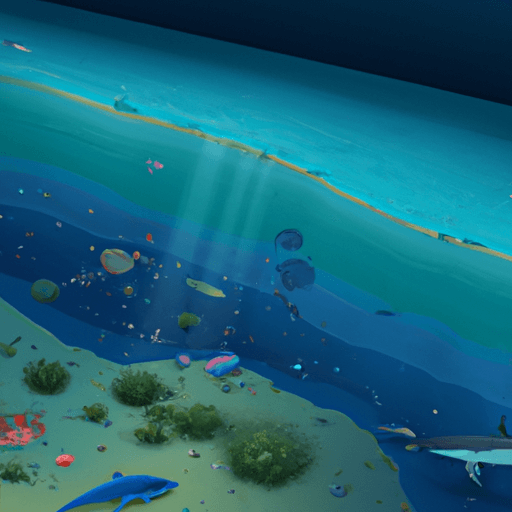Climate Change & Its Impact on Marine Ecosystem Biodiversity
Climate change is an increasingly urgent issue that is having a profound effect on marine ecosystems and the biodiversity contained within them. A changing climate can cause shifts in the distribution of species, the timing of life cycles, and the abundance of species, all of which can have devastating consequences for the biodiversity of marine life. This article will examine the impacts of climate change on biodiversity in marine ecosystems, and explore potential solutions to help mitigate the effects of climate change on marine life.
The Impacts of Climate Change on Marine Ecosystems
Climate change affects marine ecosystems in a variety of ways. Warmer temperatures can cause coral bleaching, which is a process where coral polyps expel the symbiotic algae that provide them with food and energy. This process can be devastating to coral reef biodiversity, as the loss of these algae can cause the coral to die. In addition, rising temperatures can also increase the acidity of the ocean, which can lead to the dissolution of calcium carbonate shells of mollusks and other shellfish. This can reduce the abundance of these species, reducing marine biodiversity. Additionally, rising sea levels can cause flooding of coastal habitats, leading to the destruction of vital habitats for many species.
Potential Solutions to Mitigate the Effects of Climate Change
Several potential solutions can be implemented to mitigate the effects of climate change on marine ecosystems. One solution is to reduce carbon emissions, as this will slow the rate of climate change and reduce the impacts on marine life. Additionally, conservation efforts such as marine protected areas can help to safeguard biodiversity by providing habitats for species to thrive. Additionally, research into species-specific solutions can help to identify and protect species that are particularly vulnerable to climate change. Finally, sustainable fishing practices can help to protect vulnerable species from over-fishing and reduce the pressure on marine ecosystems.
Conclusion
Climate change is an increasingly urgent issue that is having a profound effect on marine ecosystems and the biodiversity contained within them. Warmer temperatures, rising sea levels, and increased acidity of the ocean can all have devastating effects on marine life. However, there are potential solutions that can be implemented to mitigate the effects of climate change on marine ecosystems, such as reducing carbon emissions, establishing marine protected areas, researching species-specific solutions, and implementing sustainable fishing practices. It is important to recognize the urgency of this issue and take steps to protect marine life from the effects of climate change.


















Comments
Leave a Comment